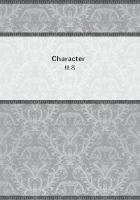"To escape, to be free!" she said, and the shadow of a smile flitted over her face. "Can you believe it? Do you consider it possible, sister?"
"I should like to believe it," whispered Elizabeth, "but there is something in my heart that reminds me of Varennes, and I only pray to God that He would give us strength to bear all the ills they inflict upon us. We must, above all things, keep our calmness and steadfastness, and be prepared for the worst as well as the best."
"Yes, you are right, we must do that," said Marie Antoinette, collecting herself. "When one has suffered as we have, it is almost more difficult to hope for good fortune than to prepare for new terrors. I will compel myself to be calm. I will read Toulan's plan, once more, and will impress it word for word upon my memory, so as to burn the dangerous sheet as soon as possible."
"And while you are doing that I will unwind the ball that Toulan brought us, and which certainly contains something heavy," said the princess.
"What a grand, noble heart! what a lofty character has our friend Toulan!" whispered the queen. "His courage is inexhaustible, his fidelity is invincible, and he is entirely unselfish. How often have I implored him to express one wish to me that I might gratify, or to allow me to give him a draft of some amount! He is not to be shaken--he wants nothing, he will take nothing. Ah, Elizabeth, he is the first friend, of all who ever drew toward me, who made no claims and was contented with a kind word. When I implored him yesterday to tell me in what way I could do him a service, he said: 'If you want to make me happy, regard me always as your most devoted and faithful servant, and give me a name that you give to no one besides. Call me Fidele, and if you want to give me another remembrancer than that which will always live in my heart, present me, as the highest token of your favor, with the little gold smelling-bottle which I saw you use in the Logograph box on that dreadful day.' I gave him the trinket at once. He kneeled down in order to receive it, and when he kissed my hand his hot tears fell upon it. Ah, Elizabeth, no one of those to whom in the days of our happiness I gave jewels, and to whom I gave hundreds of thousands, cherished for me so warm thanks as Toulan--no, as Fidele--for the poor, insignificant little remembrancer."
"God is good and great," said the princess, who, while the queen was speaking, was busily engaged in unwinding the thread; "in order that we might not lose faith in humanity and confidence in man, He sent us in His mercy this noble, true-hearted one, whose devotion, disinterestedness, and fidelity were to be our compensation for all the sad and heart-rending experiences which we have endured. And, therefore, for the sake of this one noble man let us pardon the many from whom we have received only injury; for it says in the Bible that, for the sake of one righteous man, many sinners shall be forgiven, and Toulan is a righteous man."
"Yes, he is a righteous man, blessings on him!" whispered the queen.
Then she took the paper in her hand, and began to read the contents softly, repeating every sentence to herself, and imprinting every one of those hope-bringing words upon her memory; and while she read, her poor, crushed heart gradually began to beat with firmer confidence, and to embrace the possibility of realizing the plan of Toulan and finding ******* in flight.
During this time Princess Elizabeth had unwound the thread of the ball, and brought to light a little packet enveloped in paper.
"Take it, my dear Antoinette," she said, "it is addressed to you."
Marie Antoinette took it and carefully unfolded the paper. Then she uttered a low, carefully-suppressed cry, and, sinking upon her knees, pressed it with its contents to her lips.
"What is it, sister?" cried the princess, hurrying to her. "What does Toulan demand?"
The queen gave the paper to the princess. "Read," she said--"read it, sister."
Elizabeth read: "Your majesty wished to possess the relics which King Louis left to you. They consist of the wedding-ring of his majesty, his little seal, and the hair which the king himself cut off. These three things lay on the chimney-piece in the closed sitting-room of the king. The supervisor of the Temple took them from Clery's hand, to whom the king gave them, and put them under seal. I have succeeded in getting into the sitting-room; I have opened the sealed packet, taken out the sacred relics, put articles of similar character in their place, and sealed it up again. With this letter are the relics which belong to your majesty, and I swear by all that is sacred and dear to me--I swear by the head of my queen, that they are the true articles which the blessed martyr, King Louis XVI., conveyed to his wife in his testament. I have stolen them for the exalted heir of the crown, and I shall one day glory in the theft before the throne of God." [Footnote: Goncourt, "
Histoire de Marie Antoinette," p. 384.]
"See, Elizabeth," said the queen, unfolding the little things, each one of which was carefully wrapped in paper--"see, there is his wedding-ring. There on the inside are the four letters, 'M. A. A.
A., 19th April, 1770.' The day of our marriage!--a day of joy for Austria as well as for France! Then--but I will not think of it. Let me look further. Here is the seal! The cornelian engraved on two sides. Here on one side the French arms; as you turn the stone, the portrait of our son the Dauphin of France, with his helmet on his head. Oh! my son, my poor dear child, will your loved head ever bear any other ornament than a martyr's crown; will God grant you to wear the helmet of the warrior, and to battle for your rights and your throne? How pleased my husband was when on his birthday I brought him this seal! how tenderly his looks rested upon the portrait of his son, his successor! and now--oh, now! King Louis XVI. cruelly, shamefully murdered, and he who ought to be the King of France, Louis XVII., is nothing but a poor, imprisoned child--a king without a crown, without hope, without a future!"














